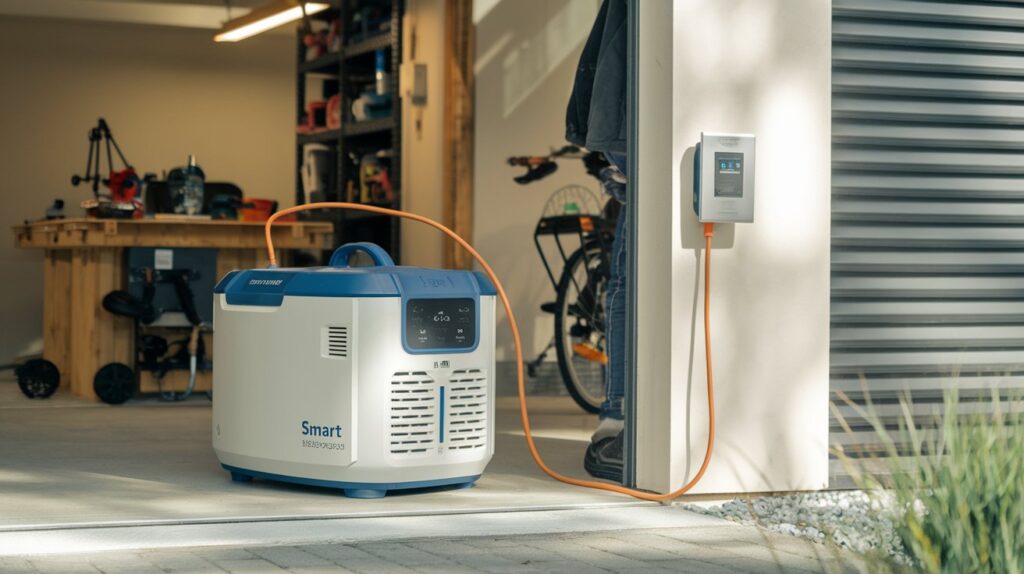Home power supply systems have become a critical consideration for homeowners seeking reliable and consistent electricity. Whether it is the occasional power outage or the increasing demand for uninterrupted power due to the proliferation of smart devices and home automation, having a dependable supply of electricity is essential. Over the years, options for home power solutions have evolved significantly, offering a range of technologies tailored to diverse needs and budgets.
Exploring the Need for Reliable Home Power
For many households, power disruptions are more than just an inconvenience, they can interrupt work, compromise safety, and affect the operation of critical medical or security equipment. This pressing need has driven a surge in demand for backup power solutions, among which generators for home use have taken a central role. These generators provide an effective fallback during outages by supplying electricity directly to homes, ensuring that essential appliances and systems remain functional until the main grid is restored.
The versatility of home generators lies in their ability to operate on different types of fuel, including diesel, natural gas, and propane, each with its own advantages regarding cost, availability, and emissions. Moreover, modern generators are designed with quieter operation and enhanced fuel efficiency, making them more user-friendly than earlier bulky models.
Types of Home Power Supply Solutions
Homeowners have several choices when it comes to powering their dwellings. Traditional standby generators automatically activate during outages, providing seamless power without manual intervention. Portable generators, on the other hand, offer flexibility and mobility but require manual setup and connection. Beyond generators, Uninterruptible Power Supply (UPS) systems are also popular for protecting sensitive electronics by supplying immediate short-term power during outages, preventing data loss and hardware damage.
Additionally, advances in renewable energy sources have introduced solar power systems paired with battery storage as an increasingly viable home power solution. These systems can reduce dependence on the grid altogether while providing clean, sustainable electricity. Solar-plus-storage setups can power homes throughout the day and night, making them attractive in terms of environmental impact and long-term cost savings.
Factors Influencing the Choice of Home Generator
Selecting the right generator for home use requires a careful assessment of household energy needs and specific operational requirements. Power capacity is a primary consideration, as undersized units will fail to support all necessary appliances, while oversized generators can lead to unnecessary fuel consumption and higher costs. Load calculations and understanding critical circuits help homeowners and professionals decide on the appropriate size.
Other factors influencing generator choice include fuel type availability, noise level restrictions, installation complexity, maintenance needs, and budget. Newer models often feature automatic transfer switches that simplify activation and integration with home electrical systems. Safety features such as overload protection and carbon monoxide detectors have become standard to minimize risks during operation.
Installation and Maintenance Considerations
Proper installation of home power supply systems is crucial to optimize performance and ensure safety. Placement of the generator must comply with local codes regarding ventilation and distance from living areas to prevent hazards. Professional setup typically includes wiring the generator into the home’s electrical panel, often through an automatic transfer switch, ensuring power transfer without manual intervention.
Routine maintenance is essential to prolong the lifespan and reliability of generators. This includes regular oil changes, filter replacements, fuel system checks, and periodic testing under load conditions. Scheduled servicing by qualified technicians helps spot potential issues early and ensures compliance with warranty requirements.
Emerging Trends and Technologies
The home power supply sector is witnessing rapid innovations aimed at enhancing efficiency, sustainability, and user convenience. Hybrid systems combining generators with solar power and battery storage optimize fuel use and lower emissions. Smart monitoring technologies allow homeowners to track generator performance remotely and receive alerts about maintenance needs or faults.
Energy management systems that optimize power distribution within homes by prioritizing critical loads during outages are also gaining popularity. These integrated solutions enhance efficiency, reduce fuel consumption, and offer greater peace of mind.

